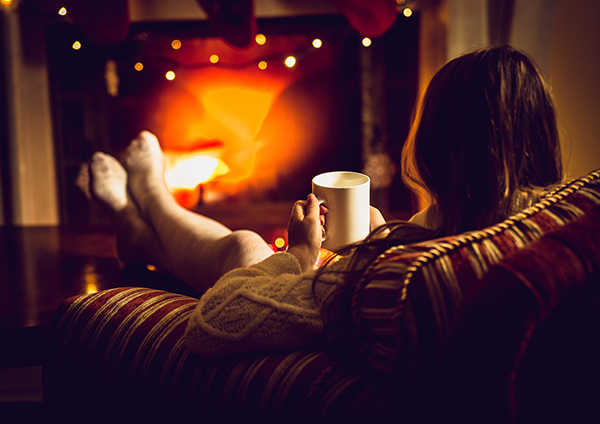
Cold weather is approaching which means we’re turning to our fireplaces for heat and comfort. Despite their common use for centuries, there are plenty of mysteries surrounding the use and maintenance of a fireplace. There are many FAQs about chimney and fireplaces that we answer all the time – so we put together some information to share with you!
Read on to learn some of the most common FAQs about chimneys or fireplaces to see if we have the answer to your question!
Do I Need to Maintain an Unused Fireplace?
Yes! If you have a fireplace that you haven’t used in months or years, it still needs the same basic maintenance steps that any fireplace and chimney needs! While you’re less likely to experience issues with creosote buildup in a rarely-used fireplace, it can still experience masonry deterioration, clogging from exterior debris, critter invasion or damage to the chimney cap on your roof.
If you plan to use your fireplace for the first time this year, or for the first time in several years, you should have it inspected and cleaned as soon as possible! While the warmer months are the best time for a chimney inspection, it’s critical to your family’s safety to ensure your fireplace is operating appropriately before you use it!
Is It Normal for My Fireplace to Smell Bad?
The smell you notice in your chimney is likely due to the byproducts of combustion, the most notable of which being creosote. As you burn wood, creosote builds in your chimney and these deposits will stay there until swept away. Downdrafts in your chimney can pull this odor straight into your home.
If you notice a smell from your chimney, it’s possible that the creosote buildups are substantial. The first step to clearing away smell in your chimney is to have it professionally swept. Following a cleaning, it’s possible to reduce or eliminate any remaining odor by fixing the downdraft problem. Installing a new damper or repairing the existing one can help deal with downdrafts, which will stop the air from pushing the chimney odor back into your home.
What Kind of Gas Is Used in a Gas Fireplace?
If you’re planning an upgrade to a gas fireplace for your home, we often get this question! The fact is that the gas used in your gas fireplace varies depending on the type of gas being routed to your home already. This could be natural gas or propane. Gas fireplaces can use either and will have the same maintenance requirements regardless of the specific type of gas your home uses.
Why Does My Fireplace Smoke So Much When I Use it?
There are a lot of potential causes behind a smoky fireplace. When trying to diagnose the issue, there are some steps you can take in your home before you call a professional:
Ensure the Damper is Open – As obvious as it is, a closed or partially closed damper is frequently the cause for smoke evacuating into the home instead of out the chimney!
Prime Your Fireplace – When the temperature difference is great inside versus outside, downdrafts can happen due to the variable pressure. You can “prime” your wood-burning fireplace by lighting a flame and holding it up into the flue.
Open a Window – Sometimes the pressure differential can be solved by opening a nearby window when going to start your fireplace. This causes the cold air to flow into the chimney and out the top, creating a draft that is productive for the start of a fireplace fire!
If none of these solutions seem to help, you may want to contact us to diagnose your chimney or flue problems!
Can I Use a Gas Fireplace When the Power Goes Out?
In some cases, yes! Zone heating with a fireplace, either wood or gas, can help keep you warm during the fall or winter when your power goes out. Of course, a wood burning fireplace doesn’t rely on your home electricity at all. However, gas fireplaces can vary!
Some gas fireplaces have their own built-in backup battery, or start with a millivolt ignition. In these cases, you’ll be able to use them just fine when the power goes out. If you’re looking at installing a gas fireplace for your home, make sure to speak with us about potential options to make sure you get exactly what your home needs!
Schedule an Inspection of Your Chimney Today!
Our CSIA Certified Chimney Sweeps will inspect your fireplace and chimney to make sure your chimney liner is in excellent condition, or to schedule an appointment to install a new liner if necessary! Contact us today! We’ll get you set up right away so you can have peace of mind.
Call Us: 1-800-438-3583
Email Us: office@drflue.com
Office Hours: Mon-Fri: 8am-4pm
Connect with Doctor Flue on Social Media

